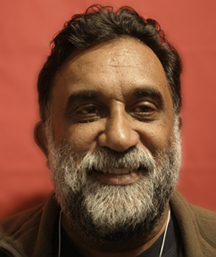|

Les Malezer
Chairperson
United Nations Indigenous Peoples Caucus
Foundation for Aboriginal and Islander Research Action
The Third Session of the Human Rights Council took
place in Geneva between 29 November - 8 December 2006. Several governments spoke
in strong support of the immediate adoption of the Declaration on the Rights of
Indigenous Peoples. Statements by Indigenous Peoples' representatives were also
presented in the Third Session. The following is a brief statement to the Human
Rights Council by Indigenous representative, Les Malezer.
[UNOFFICIAL TRANSCRIPTION]
Human Rights Council
Third Session, 29 November to 8 December 2006?at the Palais des Nations in
Geneva, Switzerland
Oral Statements, 7 December 2006
12th Plenary Meeting
Thank you Mr. President.
We can support the preliminary conclusions that have been provided in your
document 6. In particular, we support that the main legal traditions and
civilizations be represented, providing that this term does include Indigenous
peoples.
Regarding the future functions, we would like to recount our own experiences as
Indigenous peoples. For example, it has taken over twenty years, including a UN
Decade on Indigenous Peoples, for the United Nations to understand the human
rights issues that are pertaining to Indigenous peoples. The manifest abuses of
the human rights of Indigenous peoples have still not been addressed as we
struggle to establish standards and structures.
Despite the extensive work over an extensive period, many states still do not
know who the Indigenous peoples are, do not know that self-determination is not
a right to secession, do not know that free, prior, and informed consent is not
a right of veto over parliaments, and have constitutions, legal systems and
laws, which they admit do not address the equality of human rights of Indigenous
peoples.
The key points to be made are that there's a strong link between an expert body
and input by non-state parties and Indigenous peoples. The United Nations needs
to promote a democratic process involving peoples and maximizing civil society
representation, especially through experts, as well as through the states. There
still needs to … much to be learned by states in relation to human rights. There
is still a need to counteract political interests which are retained in the
Human Rights Council and other structures.
Much of the momentum and initiatives for human rights does come from the
direction of experts and civil societies. We urge continued support for
Indigenous expertise to be involved through the expert body and any relevant
subsidiary bodies. Thank you Mr. Chairman.
|

